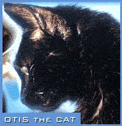Owing to the coronavirus pandemic and the ongoing Stay at Home order, I produced and recorded this show remotely from home, the ninth program prepared this way at the Talking Animals corporate headquarters in Jupiter Farms, Florida, and likely the way the broadcasts will come together thru mid-June. Tentatively, we’re due back in studio on June 24.
Carl Safina —the ecologist and author of several books, most recently “Becoming Wild: How Animal Cultures Raise Families, Create Beauty, and Achieve Peace”—addresses the relationship between the new book, and his previous one, “Beyond Words.”  He goes on to elaborate on the inspiration for “Becoming Wild,” and the research and observations that generated the core material of this new book. Safina discusses the short section where he notes a distinctive cultural trait of humpback whales: that all humpbacks within the same ocean sing the same song, but that the song is different in each ocean, and each year, the song changes—but never ends up the same within an ocean, the humpbacks in the Pacific continue to sing a song distinctive from the one sung by humpbacks in the Atlantic, and so on. As a measure of how deep and wide Safina goes in
He goes on to elaborate on the inspiration for “Becoming Wild,” and the research and observations that generated the core material of this new book. Safina discusses the short section where he notes a distinctive cultural trait of humpback whales: that all humpbacks within the same ocean sing the same song, but that the song is different in each ocean, and each year, the song changes—but never ends up the same within an ocean, the humpbacks in the Pacific continue to sing a song distinctive from the one sung by humpbacks in the Atlantic, and so on. As a measure of how deep and wide Safina goes in  “Becoming Wild,” this fascinating observation is almost an aside in an extensive section ostensibly devoted to sperm whales. Spurred by my question, Safina speaks to the virtues of matriarchal animal societies, hooked most directly to contrasting them with the way he became weary of the way the Uganda chimps he profiled were often doing battle, jockeying for position, seeking to become the alpha male (or recognize who is)…responding to hearing back something he wrote, suggesting that the chimps create problems for themselves—they’re vain “and vanity is male.” The chimps’ aggressiveness and violence is connected, conversationally, with the violence that has erupted across the streets nationally, in the wake of George Floyd’s murder. In contrast, Safina explains the importance of play across species, the point he makes in the book that “animals play because it feels good,” how scarlet macaws view and create beauty, and the delightfully singular courtship ritual of the Bowerbird. (https://www.carlsafina.org, https://www.safinacenter.org, https://www.facebook.com/CarlSafinaAuthor/, https://www.facebook.com/The-Safina-Center-79028225328/, https://www.instagram.com/safinacenter/)
“Becoming Wild,” this fascinating observation is almost an aside in an extensive section ostensibly devoted to sperm whales. Spurred by my question, Safina speaks to the virtues of matriarchal animal societies, hooked most directly to contrasting them with the way he became weary of the way the Uganda chimps he profiled were often doing battle, jockeying for position, seeking to become the alpha male (or recognize who is)…responding to hearing back something he wrote, suggesting that the chimps create problems for themselves—they’re vain “and vanity is male.” The chimps’ aggressiveness and violence is connected, conversationally, with the violence that has erupted across the streets nationally, in the wake of George Floyd’s murder. In contrast, Safina explains the importance of play across species, the point he makes in the book that “animals play because it feels good,” how scarlet macaws view and create beauty, and the delightfully singular courtship ritual of the Bowerbird. (https://www.carlsafina.org, https://www.safinacenter.org, https://www.facebook.com/CarlSafinaAuthor/, https://www.facebook.com/The-Safina-Center-79028225328/, https://www.instagram.com/safinacenter/)

ALSO: I aired an interview with Gail Carroll, who, with her husband, Paul, is a longtime puppy raiser, helping these canines prepare to become guide dogs under the umbrella of Southeastern Guide Dogs. (Disclosure: the Carrols also maintain a longtime affiliation with WMNF.) The impetus for this conversation was I got to wondering recently that, given a central aspect of being a puppy raiser is taking the dog to a wide range of places—stores, restaurants, ballgames, airports, etc.—what happens when the COVID-19 restrictions prevent puppy raisers from taking their assigned dog to almost all of those locations? Carroll answers this question, noting there’s a lot of improvising with their latest pup, Zappa (pictured, with Gail), and the Carrolls’ puppy raising counterparts, mostly suggested by the folks at Southeastern. Carroll also underscores that Southeastern always welcomes new puppy raisers, and that expertise with dogs is not required. (https://www.guidedogs.org, https://www.facebook.com/southeasternguidedogs, https://www.instagram.com/seguidedogs/)
COMEDY CORNER: Tom Shillue’s “Animal Shows” (http://www.tomshillue.com)
MUSIC: Rebekah Pulley’s “Talking Animals Theme,” instrumentals
NAME THAT ANIMAL TUNE: Norma Tanega’s “Walkin’ My Cat Named Dog”
AUDIO ARCHIVE:
Part 1:
Listen Online Now:
Part 2:
Listen Online Now:



